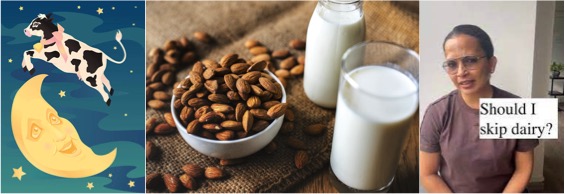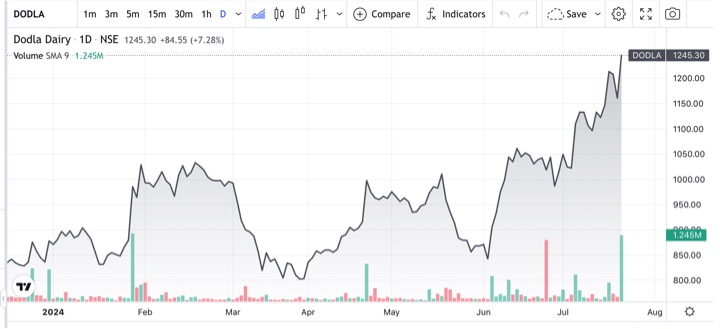The debate whether dairy should be a part of one’s diet has been going on for a while. A lot of people talk about how cutting off dairy completely can cause significant improvement in health. But, is this a myth or a reality? Nutritionist Rujuta Diwekar weighed in on whether this is a wise thing to do. She said in a reel, “No. Not necessarily”, alluding to the various concerns people have when it comes to consuming dairy, specifically health and environmental concerns.
“Dairy, milk and milk products remain one of the most nutritious foods that one can add to their diet to ensure adequate supply of nutrients and good diversity of gut bacteria,” she said, adding that there are a lot of cultures that have been having milk and milk products since forever.
“For us, since eons, animals have been a part of our farming culture. Cattle is a part of our culture, economy, ecology and family. A lot of people have switched to factory produced milk like almond milk or oat milk. But people don’t realise that almond milk production at this scale is also terrible for the ecology. It puts bees at risk. All kinds of species are important for well being. If you really want to help, support milk farmers.”
The expert also urged people to not have milk if they don’t like it or cannot digest it. But, to not switch to different industrialised milks, for it is regular milk and milk products that ensure good gut health. She concluded by saying that if one has PCOS or thyroid, or are pregnant, lactating, they can still continue having dairy and not cut it off totally.
Dietician Garima Goyal shared her thoughts, too, urging that milk is a nutritious and wholesome food packed with proteins, vitamins and important minerals like calcium. “When we talk about skipping milk and its products, we are cutting off an entire food group from our diet. But the argument of whether to skip dairy completely or not is not as straightforward as it sounds.
“Commercialisation of milk production has left their quality questionable. In industries, cows are injected with various hormones to produce more milk in a year. Such milk when consumed for the long term may cause hormonal disturbances in humans. Differences in milk proteins due to cross-breeding are another concern. One of the proteins in cow’s milk is casein and it has two gene variants A1 and A2. A1 beta-casein found in cross-bed cows was found to be associated with inflammation and diseases.”
She said before making a choice to skip dairy it is important to understand your reason for skipping. If your concern is about industrial milk then, locally grown, desi cow’s milk is a much safer option as they are devoid of synthetic hormones and inflammatory proteins.
This way, you could also help local farmers from getting bull-dozed by giant industries. If your reasons are intolerance or not liking, then you may very well skip the milk.



























